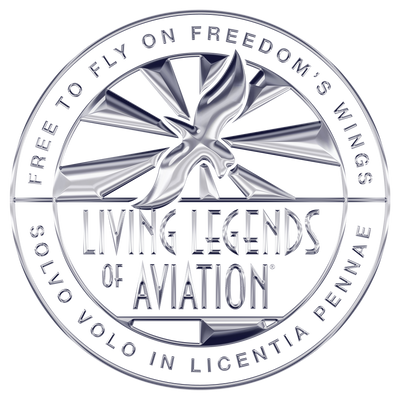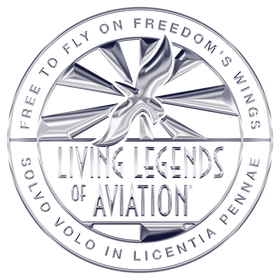CHESLEY "SULLY" SULLENBERGER

Chesley Burnett Sullenberger III (born January 23, 1951), better known as Sully, is an American retired Air Force fighter pilot, airline captain, and is U.S. Ambassador to the International Civil Aviation Organization. He is best known for his role as pilot in command in the 2009 ditching of US Airways Flight 1549 in the Hudson River off Manhattan after both engines were disabled by a bird strike; all 155 people aboard survived. Sullenberger has since become an outspoken advocate for aviation safety and has helped develop new protocols for airline safety. He served as the co-chairman, along with first officer Jeffrey Skiles (his co-pilot during Flight 1549), of the Experimental Aircraft Association (EAA)'s Young Eagles youth introduction-to-aviation program from 2009 to 2013.
Sullenberger retired from US Airways after 30 years as a commercial pilot on March 3, 2010. In May of the following year, he was hired by CBS News as an aviation and safety expert.
Sullenberger is the co-author, with Jeffrey Zaslow, of the New York Times bestseller Highest Duty: My Search for What Really Matters, a memoir of his life and of the events surrounding Flight 1549, published in 2009 by HarperCollins. His second book, Making a Difference: Stories of Vision and Courage from America's Leaders, was published in May 2012. He was ranked second in Time's Top 100 Most Influential Heroes and Icons of 2009, after Michelle Obama.
On June 15, 2021, President Joe Biden announced he would nominate Sullenberger to the post of U.S. representative to the International Civil Aviation Organization, with the rank of ambassador. On December 2, 2021, Sullenberger was confirmed by unanimous consent in the Senate to serve as the next United States Ambassador to ICAO.
On January 15, 2009, Sullenberger was the captain of US Airways Flight 1549, an Airbus A320 taking off from LaGuardia Airport in New York City. Shortly after takeoff, the plane struck a flock of Canada geese and lost power in both engines. Quickly determining he would be unable to reach either LaGuardia or Teterboro Airport, Sullenberger piloted the plane to an emergency water landing on the Hudson River. All 155 people on board survived and were rescued by nearby boats.
Sullenberger said later: "It was very quiet as we worked, my copilot Jeff Skiles and I. We were a team. But to have zero thrust coming out of those engines was shocking—the silence." Sullenberger was the last to leave the aircraft, after twice making sweeps through the cabin to make sure all passengers and crew had evacuated.
Sullenberger, described by friends as "shy and reticent," was noted for his poise and calm during the crisis; New York City Mayor Michael Bloomberg dubbed him "Captain Cool". Nonetheless, Sullenberger suffered symptoms of post-traumatic stress disorder in subsequent weeks, including sleeplessness and flashbacks. He said that the moments before the ditching were "the worst sickening, pit-of-your-stomach, falling-through-the-floor feeling" that he had ever experienced. He also said: "One way of looking at this might be that for 42 years, I've been making small, regular deposits in this bank of experience, education and training. And on January 15, the balance was sufficient so that I could make a very large withdrawal."
The National Transportation Safety Board ruled that Sullenberger made the correct decision in landing on the river instead of attempting a return to LaGuardia because the normal procedures for engine loss are designed for cruising altitudes, not immediately after takeoff. Simulations performed at the Airbus Training Centre Europe in Toulouse showed that Flight 1549 could have made it back to LaGuardia had that maneuver begun immediately after the bird strike. However, such scenarios both neglected the time necessary for the pilots to understand and assess the situation, and risked the possibility of a crash within a densely populated area.

